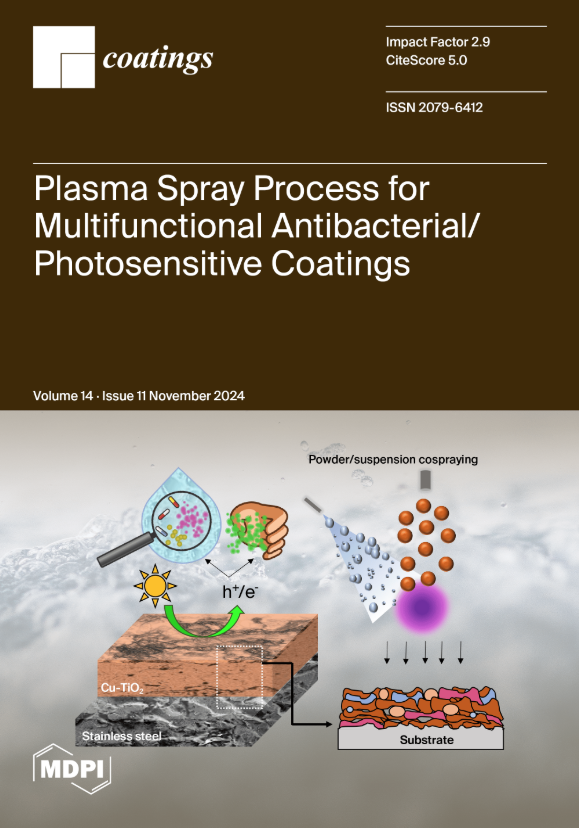中国青铜文物的腐蚀与保护:综述
IF 2.8
3区 材料科学
Q2 MATERIALS SCIENCE, COATINGS & FILMS
引用次数: 0
摘要
中国古代青铜器文物的腐蚀问题和出土后的保护措施对于研究历史文化遗产、确保遗产振兴和可持续发展至关重要。本著作包括统计分析、群组信息,并深入研究了国际上关于青铜文物腐蚀与保护的研究。它深入探讨了研究的时间表和趋势、引领研究工作的主要国家、研究内容以及这些因素之间的关系。报告全面回顾了青铜器的腐蚀原理、材料、检测方法和保护技术。研究从材料科学的角度探讨了青铜器出土前后的腐蚀原理和过程。文章总结了非破坏性检测方法,并研究了影响腐蚀的具体因素。此外,文章还评述了当前青铜和相关保护材料的腐蚀防护方法,包括常用策略,如表面腐蚀抑制剂和有机树脂涂层保护。文章还讨论了近年来在金属材料领域应用先进防腐蚀方法保护青铜的可能性。在提出创新解决方案时,该研究建议可以构建仿生物超疏水表面,以形成一道屏障,隔离潮湿空气与青铜材料的接触,从而减少腐蚀性介质对基材的附着力,大大降低发生腐蚀的可能性。最后,文章展望未来,探讨了青铜及相关保护材料的腐蚀防护所面临的挑战和潜在的发展方向。本文章由计算机程序翻译,如有差异,请以英文原文为准。
Corrosion and Protection of Chinese Bronze Relics: A Review
The corrosion problem affecting ancient Chinese bronze relics and the protective measures required post-excavation are crucial for the study of historical cultural heritage and for ensuring heritage revitalization and sustainable development. This work includes a statistical analysis, clusters information, and thoroughly examines international research on bronze relic corrosion and protection. It delves into the timeline and trends of research, the main countries leading the research efforts, the research content, and the relationships between these factors. A comprehensive review is provided on the corrosion principles, materials, detection methods, and protection techniques for bronze. The study explores the corrosion principles and processes of bronze from a materials science perspective both before and after excavation. It summarizes non-destructive detection methods and examines specific factors that influence corrosion. Furthermore, the article reviews current corrosion protection methods for bronze and related protection materials, including commonly used strategies such as surface corrosion inhibitors and organic resin coatings for protection. It also discusses the potential application of advanced corrosion protection methods in the realm of metal materials in recent years to safeguard bronze. Proposing innovative solutions, the study suggests the possibility of constructing biomimetic superhydrophobic surfaces to create a barrier isolating humid air from contacting bronze materials, thereby reducing the adhesion of corrosive media to the substrate and significantly diminishing the likelihood of corrosion. In conclusion, the article looks towards the future, considering the challenges and potential development directions for the corrosion protection of bronze and related protection materials.
求助全文
通过发布文献求助,成功后即可免费获取论文全文。
去求助
来源期刊

Coatings
Materials Science-Surfaces, Coatings and Films
CiteScore
5.00
自引率
11.80%
发文量
1657
审稿时长
1.4 months
期刊介绍:
Coatings is an international, peer-reviewed open access journal of coatings and surface engineering. It publishes reviews, research articles, communications and technical notes. Our aim is to encourage scientists to publish their experimental and theoretical results in as much detail as possible. There is no restriction on the length of the papers. Full experimental and/or methodical details must be provided. There are, in addition, unique features of this journal:
* manuscripts regarding research proposals and research ideas will be particularly welcomed
* electronic files or software regarding the full details of the calculation and experimental procedure - if unable to be published in a normal way - can be deposited as supplementary material
 求助内容:
求助内容: 应助结果提醒方式:
应助结果提醒方式:


